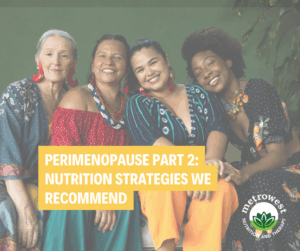
Food Aversions: Is It an Eating Disorder or Not?
We all have foods we don’t like, right? Maybe it’s the texture of mushrooms or the smell of fish or the bitterness of brussels sprouts. But when food aversions go beyond simple preference and start interfering with daily life, your health, or social situations, it’s worth taking a closer look.
So, how do you know if a food aversion is just a dislike or something more serious, like an eating disorder?
Ready for support? Let’s talk! Submit your request today.
What Is a Food Aversion?
A food aversion is an intense dislike or avoidance of certain foods, often due to their taste, smell, texture, or appearance. Sometimes, leading to significant visceral responses (i.e. gagging or nausea).
These reactions can develop from negative experiences (like choking or vomiting), sensory sensitivities, or strong associations formed during illness or stress. Or, they may be rooted in an individual’s sensory integration.
Food aversions are common in children but can persist into adulthood. For some, these aversions are mild. For others, they can cause anxiety, nutritional gaps, and social challenges.
Keep Reading: Food-Related OCD: How Does Nutrition Counseling Help?
When Food Aversions Are Not an Eating Disorder
For many people, food aversions are part of normal eating. Everyone has preferences, and avoiding foods that cause discomfort or disgust doesn’t necessarily signal a problem. Especially if all nutrient needs are being met.
Here are some examples of common food aversions:
- Disliking certain textures, like slimy or gritty foods
- Avoiding foods for ethical or cultural reasons
- Steering clear of foods that have caused mild illness in the past
If you or your child are eating a variety of foods, getting adequate nutrition, and not feeling anxious or restricted around eating, it’s likely just a personal preference, not an eating disorder.
When Food Aversions May Signal an Eating Disorder
Sometimes, food aversions cross over into disordered eating. When nutrition needs aren’t met or an individual’s quality of life is significantly impacted by their limited repertoire of foods, it’s important to consider whether it’s an eating disorder. One eating disorder diagnosis that overlaps with strong food avoidance is Avoidant/Restrictive Food Intake Disorder (ARFID).
Unlike anorexia or bulimia, ARFID isn’t about body image. It’s about fear, sensory sensitivity, or lack of interest in food. This can lead to significant nutritional deficiencies, physical ailments, and emotional distress.
Signs that food aversion may be part of an eating disorder include:
- Noticeable weight loss or poor growth in children
- Nutrient deficiencies or fatigue
- Anxiety or distress around eating
- Avoiding social situations involving food
- Fear of choking, vomiting, or allergic reactions
- Reliance on supplements or extremely limited foods
In these cases, food aversion becomes more than a dislike — it’s a health concern that deserves professional support.
Why Do Food Aversions Develop?
Food aversions can arise for many reasons, including:
- Sensory sensitivities (common in neurodiverse individuals)
- Traumatic experiences with food or eating
- Anxiety or obsessive-compulsive patterns
- Medical issues such as reflux, constipation, or GI discomfort
Understanding what’s driving the aversion helps us approach it with compassion and effective care.
We Can Help!
At Metrowest Nutrition & Therapy, our team of dietitians and therapists specializes in helping children, teens, and adults navigate complex relationships with food. We take a collaborative approach — blending nutrition therapy, mental health support, and exposure-based techniques — to help individuals expand their diets and reduce anxiety around eating.
Whether the challenge is ARFID, picky eating, or chronic food avoidance, we meet each client where they are and help them build confidence one bite at a time.



